By Shaiq Hussain -
Pitfalls and perils for Pakistan of Saudi, Iranian, Qatari divide
As the world sees the dawn of another Cold War between the United States and Russia hotting up, the member nations of Gulf Cooperation Council (GCC) also face a similar situation. The leading actors of this regional hostility and antagonism are Saudi Arabia, Qatar and Iran,
Saudi Arabia and its allies are weary of Qatar for what they believe is its surprising support for the Muslim Brotherhood in Egypt after the military junta there overthrew the government of President Mohamed Morsi last year.
Before that move on the part of Qataris, Saudi Arabia was working together with Qatar and other Arab kingdoms like Bahrain and the United Arab Emirates to contain the political fallout of somewhat liberal politics that was given birth by the Arab Spring and also to counter the Iranians’ influence in the Middle East and especially in an important regional country, Syria.
Now the Saudis and their allies have to work on two fronts. One, is of Qatar and the other to shore up support in the Sunni Arab world against the arch rival Iran and its allies like Syria.
This spells trouble for Pakistan.
On Syria, the Pakistani policy makers seem to have decided to side politically with Saudi Arabia by supporting the replacement of Syrian President Bashar al Assad with an interim government – notwithstanding all official denials by the government on any shift in foreign policy on this score.
It stops not here, as press reports in Middle East and Pakistani media speak of another dangerous move by Islamabad, to cater to the military needs of the Saudis coupled with allegations about imparting training in warfare to the Syrian rebels – again on the behest of Riyadh. One shall be mindful of the fact that Al Qaeda fighters also form the sizable portion of Syrian rebels. These Al Qaeda militants oppose the Bashar regime on sectarian grounds, and over its alliance with Iran and Hizbullah.
The media reports claim that all this being done as quid pro quo for the Saudi financial assistance worth $1.5 billion that Riyadh recently dished out to Pakistan while another installment of the same amount is on its way with countries like Bahrain, whose King was recently in Islamabad on an official visit undertaken by Bahraini ruler after 40 long years, also making their monetary contributions.
The ruler of Bahrain strongly desires to expand the military-to-military cooperation with Pakistan and his visit to Joint Staffs Headquarters in Rawalpindi, the first ever by Bahrain’s King, amply reflects that. Again, media reports keep pouring in about Bahrain’s wish to not only purchase weapons from Islamabad but also to recruit security personnel or retired military officials to bolster the minority Sunni in the face of any likely uprising by the Shia majority in this tiny Gulf state.
Siding with the Saudis on Syria and breaking away from the past policy based on neutrality is likely to cost Pakistan dearly, on the fronts of security as well as economy, especially in the energy sector.
Pakistan is being warned by security experts and retired foreign policy experts to keep its distance from the Sunni-Shia divide in the Middle East and also the new split between Sunni kingdoms of Saudi Arabia and Qatar on grounds that it would not only have deep negative impact on its own security given its own decades’ old history of sectarianism but also aggravate further its grave energy crunch.
“The cost is very high for taking sides in the Middle East. Instead Pakistan should indeed diversify its relations. Involvement in the Middle East conflict and ties with Saudi Arabia at the cost of relations with Qatar or Iran and vice versa is going to impact Pakistan badly. Its political and geopolitical fallout would further tarnish our image,” said the noted security and defense analyst, Muhammad Amir Rana.
“Pakistan is bearing the brunt of sectarianism and it could aggravate further in case of active involvement in the Saudi-Syrian tussle.” Moreover, he said it would have impact on Pakistan’s economy as well.
First it was the Iran-Pakistan gas pipeline that fell prey to Washington-Tehran animosity and the Saudis’ dislike for the Iranians and now the much talked about project of Natural Gas (LNG) import from Qatar also seems to be in doldrums because of the Doha-Riyadh divide. Qatar is said to be the viable alternative for Pakistan’s fast growing energy requirements.
Why is Pakistan going this route? Do our foreign policy managers know and realize the repercussions of their current policy shift for the Middle East? They do and that is why it’s not only the repeated refutation of all media reports talking about shift in Pakistan’s policy for the oil-rich region that we are reading and hearing of but some behind the scenes diplomatic moves are also being made to woo the Qataris.
A few days back, Prime Minister Nawaz Sharif sent one of his close advisors to Doha with a message that his country was still very much interested in the vital LNG import deal. The PM’s aide though was reportedly given a cold shoulder in the Qatari capital.
The diplomatic circles in Islamabad say that it’s not for the first time that any Pakistani official was snubbed in Doha. During the previous PPP-led government as well a cabinet minister was sent to win over the Qatari authorities but to no avail.
“The Qataris always have doubts about Pakistan. Perhaps in the PPP government they didn’t like our interest in gas from Iran through a multi-billion dollar pipeline and now it’s because of our siding with Saudi Arabia,” said a diplomatic source requesting not to be named.
It’s not a dissimilar situation when it comes to Iran-Pakistan relations. The Pakistani policy makers were warm towards the Iranians in the last government of People’s Party but all that warmth receded when the Nawaz government took over.
The Iranians, according to diplomatic circles, blame the Nawaz government for being pro-Saudi Arabia, irrespective of whatever Pakistani authorities say about it.
Pakistan’s major problem is its ever growing financial woes and to mitigate them its needs financial assistance. No disagreement with that but the policy makers need to keep in mind the ramifications of their policy of choosing friends between the leading actors in the Middle East.
Islamabad needs loans, oil and gas supplies, foreign investment and jobs that can come through the Gulf region and the Arab states are very much aware of it. The Arab Sheikhdoms helping Islamabad come out of this quagmire want their pound of flesh. Pakistan getting involved in their power politics has a heavy price tage, which could in turn ruin Pakistan’s peace and prosperity.
The writer is a journalist based in Islamabad










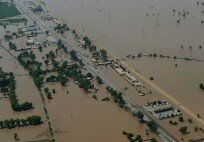
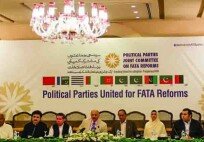









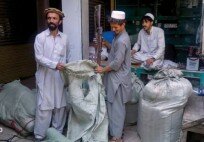









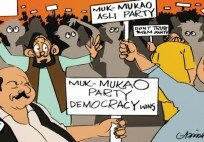
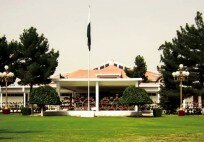









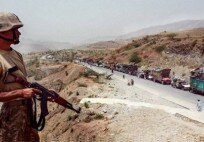





























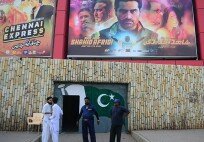














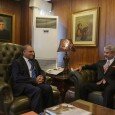
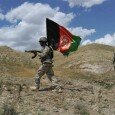
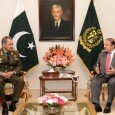
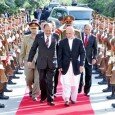



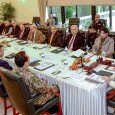


Recent Comments